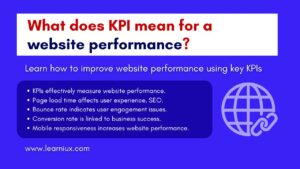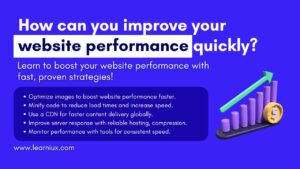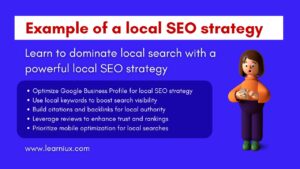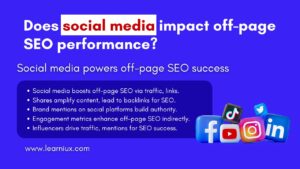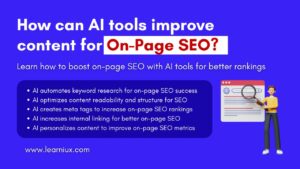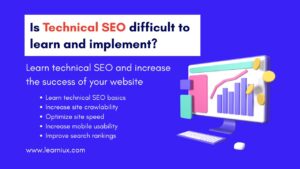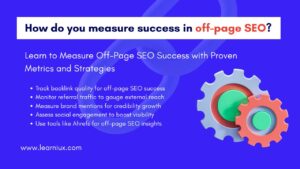SEO marketing services are a strategic approach to improving a website’s visibility on Google, Bing, and other search engines, allowing businesses to attract more organic traffic and strengthen their online presence. In today’s digital age, where consumers increasingly rely on search engines to find products, services, or information, SEO, or search engine optimization, has become a cornerstone of effective marketing. It involves a combination of techniques, strategies, and best practices designed to increase a website’s ranking on search engine results pages, ultimately driving more relevant visitors to the site. Unlike paid advertising, which provides immediate but temporary results, SEO focuses on organic growth, delivering long-term benefits that can significantly impact a business’s success. Understanding what SEO marketing entails and how it works is essential for businesses aiming to thrive in a competitive online landscape.
At its core, SEO marketing is about aligning a website with the algorithms used by search engines to rank content. These algorithms consider hundreds of factors, such as relevance, user experience, and website authority, to determine which pages appear at the top of search results. The goal is to ensure that a business’s website appears prominently, ideally on the first page, when a user types a query into a search engine, as most users rarely bother to go beyond that. By optimizing various elements of a website, SEO services help businesses connect with their target audience more effectively, increasing the likelihood of conversions, whether that’s sales, leads, or engagement.
One of the main reasons SEO marketing is essential is its ability to drive organic traffic, which is visitors who find a website through unpaid search results. Unlike paid advertising, organic traffic is sustainable and cost-effective over time, making it a valuable asset for businesses of all sizes. For small businesses or startups with limited marketing budgets, SEO provides an opportunity to compete with larger players by targeting specific keywords and niches. Additionally, a high ranking on search engines increases a brand’s credibility, as users trust a website that appears at the top of the results. A well-optimized website also improves the user experience with fast load times, mobile compatibility, and relevant content, all of which contribute to higher engagement and customer satisfaction.
SEO marketing services can be broadly categorized into four major components: on-page SEO, off-page SEO, technical SEO, and local SEO. Each plays a different role in optimizing a website and requires a tailored approach to achieve the best results. On-page SEO focuses on elements within the website, such as content, keywords, and meta tags. Keyword research is an important first step, which involves identifying the terms and phrases that potential customers use when searching for products or services. These keywords are then strategically incorporated into website content, including blog posts, product descriptions, and landing pages, to demonstrate relevance to search engines. High-quality content is just as important, as it engages users and encourages them to spend more time on the site. Meta tags, such as title tags and meta descriptions, provide a concise summary of the page’s content, influencing click-through rates in search results. Internal linking, which connects related pages within a website, also helps search engines understand the structure of the site and improves user navigation.
On the other hand, off-page SEO focuses on building a website’s authority and reputation outside of its own pages. The most important aspect of off-page SEO is backlink building, which involves acquiring links from other reputable websites. Backlinks act as a vote of confidence, signaling to search engines that the website is trustworthy and authoritative. However, not all backlinks are created equal; links from high-quality, relevant sites carry more weight than those from lower-quality sources. Other off-page strategies include social media engagement, where businesses interact with their audience on platforms like Twitter, Instagram, or LinkedIn, and guest blogging, which allows businesses to publish content on external sites to reach new audiences. Online reputation management is another important factor, as positive reviews and mentions can increase a brand’s credibility and influence its rankings.
Technical SEO addresses the behind-the-scenes factors that affect a website’s performance and accessibility to search engines. One important aspect is ensuring that a website is crawlable, meaning search engines can efficiently scan and index its pages. This includes optimizing site speed, as slow-loading pages can frustrate users and lead to high bounce rates, where visitors leave the site early. Mobile-friendliness is another priority, as a significant portion of searches now occur on smartphones and tablets. Websites should be responsive, adapting seamlessly to different screen sizes and devices. Security is also important, with HTTPS protocols providing a secure browsing experience that search engines prefer. In addition, technical SEO involves addressing issues such as broken links, duplicate content, and crawl errors, all of which can negatively impact rankings.
For businesses targeting local customers, local SEO is a specialized component that focuses on optimizing a website for location-based searches. This is especially important for brick-and-mortar businesses like restaurants, retail stores, or service providers that rely on nearby customers. A key step in local SEO is optimizing your Google Business Profile, which displays important information like your business address, phone number, and hours of operation in search results and on Google Maps. Targeting local keywords like “coffee shop in Mumbai” or “plumber near me” helps businesses attract relevant traffic. Encouraging customer reviews and maintaining consistent business information in online directories also boosts local rankings. Creating location-specific landing pages can further increase visibility by addressing the unique needs of customers in different areas.
The process of implementing SEO marketing services usually begins with a comprehensive website audit. This involves analyzing the site’s current performance, identifying technical issues, content gaps, and opportunities for improvement. Tools such as Google Analytics, Google Search Console, and third-party platforms such as SEMrush or Ahrefs are used to collect data on traffic, rankings, and user behavior. Based on the audit, SEO professionals conduct keyword research to identify high-value terms with sufficient search volume and manageable competition. These insights help develop a customized SEO strategy that aligns with business goals, whether it’s increasing sales, generating leads, or building brand awareness. This strategy is then implemented through a combination of on-page, off-page, and technical optimization, with ongoing monitoring to track progress and adjust strategies as needed. Regular reporting ensures transparency, providing businesses with clear metrics on traffic, rankings, and conversions.
SEO is a dynamic field, and it’s important to stay up to date with the latest trends to maintain a competitive edge. One key trend is the rise of voice search, driven by the popularity of smart devices like the Amazon Echo and Google Home. Optimizing for voice search requires a focus on conversational, long-tail keywords, as users often phrase queries as questions, such as “What are the best SEO services near me?” Another trend is the increasing role of artificial intelligence in search algorithms. AI-powered tools analyze user behavior to deliver personalized search results, underscoring the importance of creating content that matches user intent. Semantic search, which focuses on understanding the context and meaning behind queries, is also gaining importance. Businesses should optimize for not only exact keywords, but also related terms and topics to rank effectively. Additionally, video and visual content is becoming increasingly important as users increasingly engage with multimedia formats. Optimizing videos with descriptive titles, tags, and transcripts can improve visibility on platforms like YouTube and in search results. Finally, search engines are placing more emphasis on E-A-T, which stands for Expertise, Authority, and Trustworthiness. Websites that demonstrate expertise through high-quality content, authoritative backlinks, and trust signals like secure connections and positive reviews are more likely to rank well.
Choosing the right SEO marketing services provider is an important decision that can significantly impact a business’s success. A reliable provider should have a proven track record, with case studies or client testimonials demonstrating their ability to deliver results. Transparency is essential, as businesses should receive regular updates on progress and performance. A one-size-fits-all approach to SEO rarely works, so providers should offer customized strategies tailored to a business’s industry, audience, and goals. For example, an e-commerce website might prioritize product page optimization and conversion tracking, while a local business might focus on Google Business Profile improvements and local citations. Industry-specific knowledge is also valuable, as SEO needs can vary significantly across sectors such as healthcare, retail, or technology.
Despite its importance, SEO is often surrounded by myths that can mislead businesses. A common misconception is that SEO delivers instant results. In reality, SEO is a long-term strategy that requires months of consistent effort to see significant improvements. Another misconception is that stuffing a website with keywords will boost rankings. Overuse of keywords, known as keyword stuffing, can actually hurt rankings, as search engines prefer natural, user-focused content. Similarly, some believe that SEO is all about getting high rankings, but rankings alone are not enough. A successful SEO strategy improves user experience, reduces bounce rates, and drives meaningful actions like purchases or inquiries. By dispelling these myths, businesses can set realistic expectations and focus on sustainable growth.
Measuring the success of SEO marketing involves tracking key performance indicators that show its impact. Organic traffic growth is a primary metric, which indicates how many visitors are searching for a website through search engines. Keyword ranking improvements indicate whether a website is climbing the search results for targeted terms. Conversion rates are just as important, as they measure how many visitors take desired actions, such as making a purchase or filling out a contact form. Other metrics, such as bounce rate and average session duration, provide insight into user engagement and the effectiveness of a website’s content and design. Tools like Google Analytics and Search Console provide detailed reports, allowing businesses to monitor progress and identify areas for improvement.
The benefits of SEO marketing go beyond immediate traffic and rankings. By investing in SEO, businesses can build a strong foundation for long-term digital success. Unlike paid advertising, which stops producing results once the budget runs out, SEO efforts grow over time, delivering consistent traffic and leads. A well-optimized website also builds user trust, as high rankings and a seamless browsing experience signal professionalism and credibility. For businesses operating in a competitive marketplace, SEO provides a way to differentiate themselves and gain market share without relying solely on expensive advertising campaigns.
SEO marketing services are a critical component of a modern digital strategy, enabling businesses to improve their online visibility, attract targeted audiences, and achieve sustainable growth. By leveraging on-page, off-page, technical, and local SEO strategies, businesses can optimize their websites to meet the demands of search engines and users. Staying up-to-date with trends like voice search, AI-driven personalization, and e-a-t ensures that SEO efforts remain effective in an ever-evolving landscape. Partnering with a professional SEO services provider gives businesses the expertise and resources they need to navigate the intricacies of SEO, delivering measurable results that drive success. Whether you’re a small business looking to grow locally or a global brand trying to dominate search results, SEO marketing services provide the tools and strategies to thrive in the digital world.

























